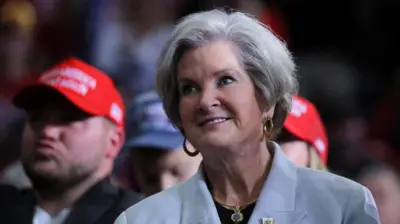We've updated our Privacy and Cookies Policy
We've made some important changes to our Privacy and Cookies Policy and we want you to know what this means for you and your data.
Japanese car sales sink in South Korea amid trade rift
Japanese car sales in South Korea fell again last month, as a trade row between the two countries continues to simmer.
Toyota sales slumped 62% in September from a year earlier, while Nissan and Honda also saw sales drop.
The declines came despite a rise in sales of foreign cars overall in South Korea last month.
Tensions between the two sides have sparked boycotts of some Japanese goods in South Korea.
Consumers have reacted to a row between Seoul and Tokyo, which has evolved in recent months from a diplomatic feud into a trade battle.
The dispute flared in July when Japan tightened controls on South Korean exports, targeting materials used in memory chips and display screens that are vital for local companies such as Samsung.
Both countries later struck one another off their list of trusted trade partners.
Auto sales slump
Carmakers have been among the companies caught in the crossfire of the trade spat.
"We believe that the recent decline in sales volume has been affected by the recent Japan-Korea relationship," a Toyota spokesperson said.
Image source, Getty Images
Other Japanese automakers also saw a slide in sales in Korea last month. Figures from a Korean auto industry group released Friday showed total sales from Toyota, Honda and Nissan plunged 74% in September from a year earlier, according to news agency Yonhap.
The drop came despite strong demand for foreign cars in South Korea. The Korea Automobile Importers & Distributors Association said sales of imported vehicles rose 17% in the country last month.
How did the trade rift begin?
The trade row has been fuelled by diplomatic tensions over compensation for wartime labour.
Last year, South Korean court rulings that ordered Japanese firms to pay compensation to Koreans over forced wartime labour inflamed long-running tensions.
The decisions drew condemnation from Japan, which argues the dispute was settled in 1965 when diplomatic ties were normalised between the neighbouring countries.
In recent months, South Korea has terminated its military intelligence-sharing pact with Japan and the dispute has continued to spill over into trade.
Top Stories
More to explore
Most read
Content is not available








